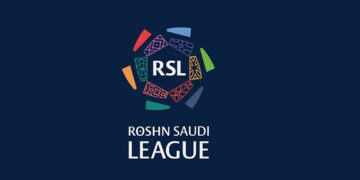Blood thinning plays a vital role in managing various cardiovascular conditions, and understanding how it works can help individuals make informed decisions about their health. In Pakistan, where heart disease is increasingly common due to lifestyle changes and genetic predisposition, awareness of circulatory health, especially concerning blood thinning, has become more important than ever.
Why Blood Thinners Are Used: A Vital Defense Against Clotting
Blood thinners, often referred to as anticoagulants or antiplatelet agents, are medicines that reduce the blood’s ability to form clots. While clotting is a natural and essential process that stops bleeding when you’re injured, unnecessary or excessive clotting inside the body can be dangerous. It may lead to conditions such as heart attacks, strokes, and deep vein thrombosis (DVT).
For many people, especially those living in urban centers of Pakistan with increasingly sedentary lifestyles, the risk of such conditions is on the rise. Blood-thinning treatments are prescribed by healthcare providers to help prevent clots in individuals at risk due to factors like high cholesterol, hypertension, diabetes, or a history of clot-related illnesses.
Natural Blood Viscosity Control: Lifestyle and Diet Choices
Many people don’t realize that certain lifestyle and dietary choices can naturally support healthy blood viscosity. Regular exercise, hydration, and a balanced diet rich in omega-3 fatty acids, garlic, turmeric, and ginger may assist the body in maintaining good circulation. Though these methods are not a replacement for medically prescribed blood thinning agents, they can support overall cardiovascular health.
In the context of Pakistan’s traditional diets, the inclusion of spices like turmeric and foods such as fish can be advantageous. However, it’s essential to consult a healthcare professional before relying on diet alone, especially if you are already on prescribed medications.
Medical Interventions for Thinning the Blood: What to Expect
Pharmaceutical blood thinning treatments come in various forms, including oral tablets and injectable solutions. These medicines are often prescribed for long-term use in patients with chronic conditions or those who have undergone surgeries like valve replacements or stent placements.
Patients should understand that these medications don’t actually “thin” the blood in a literal sense. Instead, they alter the chemical processes that cause blood to clot. Regular monitoring through blood tests is often required to ensure the medication is working effectively without causing side effects like excessive bleeding.
In Pakistan, where access to regular medical follow-ups can vary greatly from urban to rural areas, it’s crucial to maintain a consistent relationship with a trusted healthcare provider when undergoing any blood-thinning therapy.
Safety Tips While on Blood Flow Management Medicines
If you’re on medication for blood thinning, there are certain precautions you need to take:
- Avoid injuries: Since these medicines reduce your blood’s ability to clot, even a minor injury can lead to significant bleeding.
- Inform your doctor before any procedure: Even dental work can pose a risk when you’re on blood thinners, so always inform your healthcare provider.
- Be mindful of drug interactions: Some over-the-counter medicines and herbal supplements can interfere with your treatment. Always discuss new medications with your doctor.
- Consistent diet: Especially if you’re on vitamin K-sensitive anticoagulants, keeping your intake of vitamin K consistent (found in green leafy vegetables) is important.
Such guidelines are particularly critical in the Pakistani context where self-medication is common. Always consult a physician before making any changes to your treatment plan.
When Blood Thinning Becomes a Lifesaving Necessity
There are several health conditions where managing blood flow becomes not just helpful but essential. People with atrial fibrillation, artificial heart valves, or a history of stroke often require lifelong management with blood thinning medications.
For these individuals, the choice isn’t optional—it’s a necessary part of staying alive and preventing potentially fatal events. With the high rate of heart disease in Pakistan, early diagnosis and correct treatment play a critical role in saving lives.
Local pharmaceutical companies like Hoechst Pakistan Limited are contributing to the availability of reliable blood-thinning options, supporting the national healthcare system in managing such widespread conditions.
Understanding the Risks: Not All Thinners Are for Everyone
While blood thinners are highly beneficial, they are not suitable for everyone. Certain individuals, such as those with bleeding disorders, ulcers, or a history of hemorrhagic stroke, may be advised against their use. In these cases, alternative treatment options are explored.
Also, during pregnancy or in people with kidney or liver conditions, doctors might recommend specialized care. Since medical decisions depend on an individual’s unique health profile, it’s vital to avoid self-prescription or taking advice from unqualified sources.
Education and awareness in this area are crucial, especially across Pakistan, where healthcare literacy can vary. Trustworthy sources of information and regular consultation with qualified healthcare professionals can bridge the gap.
Conclusion: The Importance of Understanding Blood Thinning
Blood thinning is a cornerstone of modern cardiovascular treatment, and understanding how it works can lead to better health outcomes. For the Pakistani population, where the burden of heart disease continues to grow, both patients and caregivers should stay informed about their treatment options and responsibilities.
Whether managed through lifestyle, diet, or medication, ensuring proper circulation can prevent some of the most serious health threats we face today. Empowering communities with knowledge about circulatory care, early detection, and safe use of medication is the first step toward a healthier nation.


























